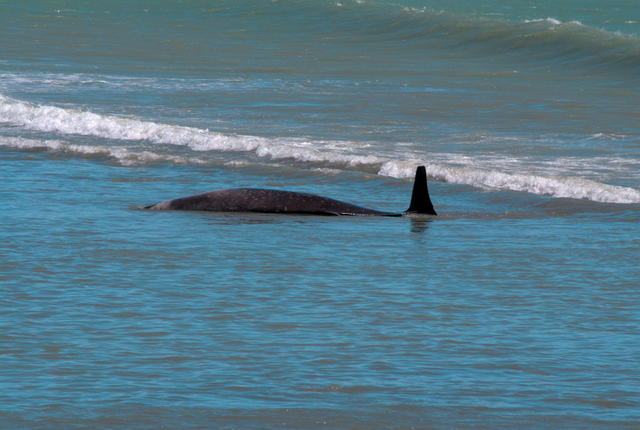Do Dead Whales Always Explode?
What’s going on with exploding whales? Is it just whales, and do whales explode in the ocean, or just when they’re on land? As it turns out, just about any decomposing animal will explode if given the right conditions; the difference with whales is that it’s a much, much bigger explosion, and beached whale corpses make for perfect explosion conditions. When an animal dies, their corpses fill with gasses, such as hydrogen sulfide and methane, causing the decomposing body to bloat considerably. If the whale carcass remains in the ocean, sharks and other carnivores and scavengers will bite away at the bloated body, helping keep the gasses in check. But without any scavengers eating at the body, combined with the increased pressure of air on land, a beached whale carcass will continue to bloat until the gasses have to escape somehow, often in a spectacular blast of guts and detritus. The explosion is helped along by the heat of the sun beating down on the corpse, as well as the fact that the whale’s massive weight on land will close up any openings in its body.

If you’ve never seen videos of beached whales exploding on unsuspecting bystanders? If not, here’s a special treat for you. What you’re about to witness is one of the most spectacular instances of a plan going horribly awry; when a bloated whale carcass washed up on shore in Florence, Oregon in 1970, local government decided the most logical way to deal with the mess would be to blow the whale up. Using half a ton of dynamite to dispose of the eight-ton body, under the belief that the debris would be blasted into the ocean. What ended up happening was a spectacular explosion with a quarter-mile radius of whale guts raining down upon the crowd, and at least one crushed car:
